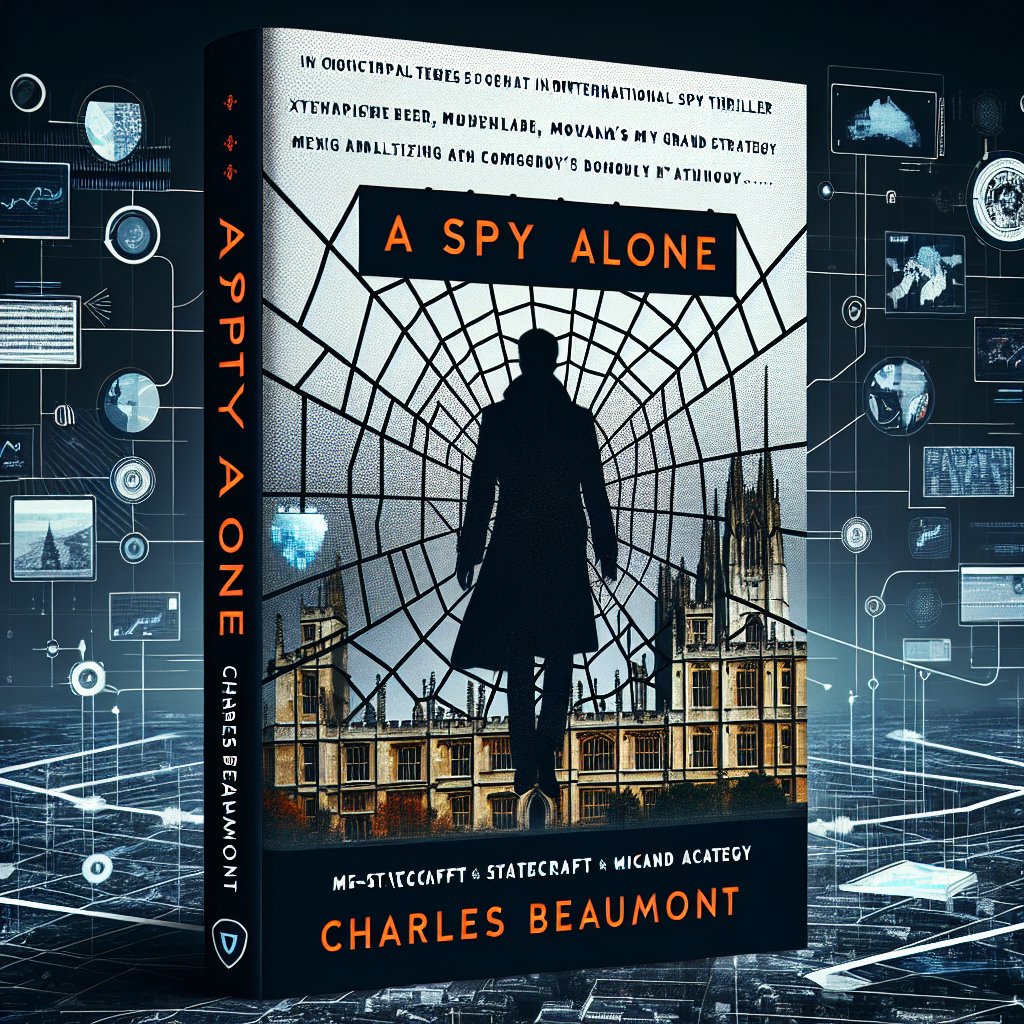Image created by AI
Inside the Mind of an Ex-Spy: Charles Beaumont’s "A Spy Alone" Bridges Espionage Realities with Fiction
In the enigmatic world of espionage literature, few wield the pen as credibly as an actual veteran of the trade. Charles Beaumont, a seasoned ex-MI6 officer, has channeled his experiences into the crafting of "A Spy Alone," a novel that endeavors to paint an authentic picture of modern intelligence operations and Russian influence in Britain.
Beaumont's book captivates readers with the exploits of the Costello Group, a cadre of Oxford alumni recruited by Russian intelligence through a compelling academic figure, entangling them within the web of Moscow's grand strategy. At the heart of the narrative is Vasya Morozov, a former GRU agent whose deft maneuvers and eventual turning by MI6's elite unit, the “Pole,” drive the thrilling sequences that span decades of intrigue from the halcyon days in Oxford to the austere northern reaches of England.
Echoing the mastery of intrigue that made John le Carré an indelible name, Beaumont’s work furthers the genre by injecting contemporary nuances. He enumerates the democratization of intelligence, citing the emergence of entities like Bellingcat that replicate the capabilities formerly reserved for national agencies, and the increasingly central role of technology in operations.
Yet, beyond literary escapades and the chameleon-like artistry of spycraft, the inexorable entwining of statecraft and academia serves as a foundation for Beaumont's critique of British society and its susceptibility to foreign influence. The novel draws parallels to historical episodes, such as the Cambridge Five, suggesting that similar scenarios may well live on in today's corridors of power.
The author’s in-depth dissection of the UK as a marketplace for international influence, far from an exclusively Russian play, extends to broader geopolitical shifts. Beaumont reflects on the changing landscape, with China poised with a long-term strategy contrasting the reactive posture often seen in the West. The Ukraine conflict is of particular concern. Here, Beaumont muses on Western commitment and the implications of narrative control in the ongoing struggle, a subject set to feature heavily in his impending sequel.
"A Spy Alone" is more than just a spy novel - it’s a discourse on the contemporary geopolitical condition, nestled within a labyrinth of betrayal, identity, and patriotism. It begs the question of whether integrity can withstand the market forces of international intrigue. Beaumont, both in literature and life, captures the eloquence and understatement of an English gentleman, masking the keen intellect of a spy and the narrative acumen of a seasoned author.










